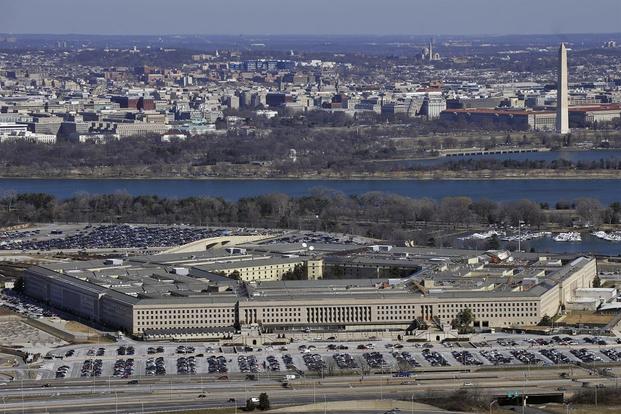House and Senate negotiators have reached a deal on a defense policy bill aimed at avoiding a government shutdown, creating a Space Force, and getting rid of the so-called "widow's tax" that has been a main goal of military families for years.
A conference version of the National Defense Authorization Act for Fiscal 2020, released late Monday evening, preserves a 3.1% pay raise for the military. The $738 billion bill, which includes an additional $5.3 billion earmarked for emergency disaster recovery, charts out a three-year "phased repeal" of the policy that requires VA payments to survivors of fallen troops to be deducted from Defense Department survivor payments.
It also lays the groundwork for the long-awaited creation of a sixth military service branch, U.S. Space Force. According to planning, the new service would fall under the U.S. Air Force and be populated by transferred Air Force personnel as it stands up. The plan also creates a new service chief position: Chief of Space Operations, reporting to the secretary of the Air Force and a member of the Joint Chiefs of Staff.
While the bill does not do away with the Feres Doctrine, which prohibits U.S. troops from suing the government due to injury, it does include a new provision that authorizes the secretary of defense to settle and pay administrative claims to amend for the death or injury of troops due to DoD medical malpractice, a change hailed as a step in the right direction.
In remarks over the weekend, both HASC Chairman Rep. Adam Smith, D-Wash., and ranking member Rep. Mac Thornberry, R-Texas, said they expected a vote on NDAA in the full House could come Wednesday, with a Senate vote to follow.
The negotiators were working against a Dec. 21 deadline, when a continuing resolution on spending expires and could trigger a government shutdown unless compromise was reached on a range of issues.
One of the main stumbling blocks in reaching an agreement on the NDAA has been President Donald Trump's demand for a diversion of $3.6 billion in military construction funds to pay for the southern border wall.
The conference version of the bill scraps a House provision that would have prevented spending on the border wall, but does not explicitly designate funds for the purpose.
The outlines of a tentative NDAA deal began to emerge over the weekend in remarks by Smith, Thornberry and others at the Reagan National Security forum in Simi Valley, California.
The officials said agreement had been reached for Democrats to drop opposition to creating a Space Force as a sixth military branch in exchange for 12 weeks of parental leave for federal workers.
Sen. Kirsten Gillibrand, D-New York, a member of the Senate Armed Services Committee, said on Twitter that under the agreement "the federal government, the country's largest employer, could now provide basic parental leave for their workers. There's more to do, but it's an encouraging step forward in our fight to enact paid family leave for all workers."
Overall in the effort to work out an NDAA deal, "We were able to get paid parental leave, take care of the widows, deal with the Feres Doctrine," Smith said. "There's a lot of stuff we did that I frankly thought would've been difficult in this environment."
-- Richard Sisk can be reached at Richard.Sisk@Military.com.
Editor's note: This story has been updated to clarify that Chief of Space Operations will not be a civilian position.













